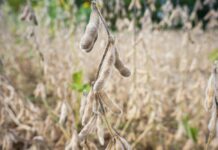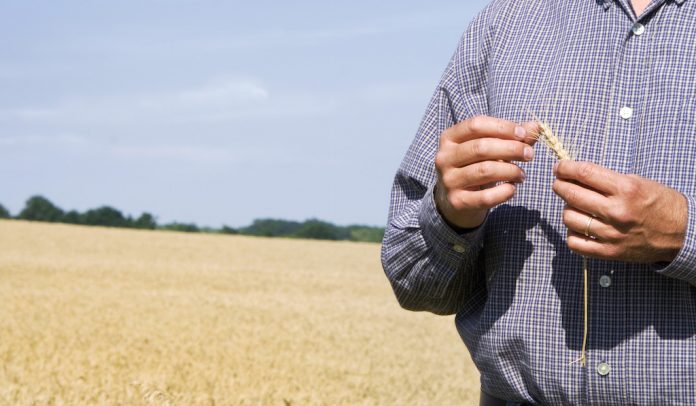“Everything will be OK in the end. If it’s not OK, it’s not the end.”
— Wisdom from Kayla Z., of North Dakota, on a Dove chocolate wrapper
Commentary by Susan Crowell / editor@farmanddairy.com
We often think of the science of economics as dry and boring. A bunch of numbers and theories. But economics and economies can tell stories about people — and that’s not dry and boring.
Last month, at the U.S. Department of Agriculture’s annual Agricultural Outlook Forum, USDA Chief Economist Robert Johansson shared some numbers that tell the grim story of many farmers today.
While the U.S. economy remains strong, with GDP growth estimated to average more than 2 percent over the next two years, real net farm income is down 28 percent, Johansson said, relative to the 10-year average.
In his statement to the U.S. House Committee on Agriculture Feb. 27, U.S. Secretary of Agriculture Sonny Perdue threw out these numbers: Net farm income has fallen nearly 50 percent from its peak in 2013.
And, as a result of low commodity prices, farmers are leveraging their equity — oftentimes their land — to finance operating expenses. Right now, the number of crop farms in a highly leveraged financial situation are about 1 in 10.
“Today, total debt is approaching record levels in real terms, and real estate debt has reached a record high in 2018,” Johansson said in his report at the forum.
Enough with the depressing numbers.
They do give us, however, the real picture of what’s happening on farms around this country. Most of you are living it, but some readers may be on the periphery and not realize the stark reality of the current farm situation. We need them to know that we’re hurting. You are the face behind these numbers.
After hearing I’ve been at Farm and Dairy for nearly 34 years, an Ohio farmer looked at me last night and said, “What, you’ve been through about three of these cycles then?”
I guess I have. Farm and Dairy rides the peaks and troughs of these economic cycles with you. And this I know: Farmers are resilient.
I also know this: Farmers are fiercely independent, and sometimes (sometimes?) stubborn — traits that can be a detriment if it means we’re slow to change or seek help or face hard decisions.
We can’t wish this current farm economy away. We can’t ignore the impact to our individual farms and farmers. We can’t put on a smiling face when we feel like everything is slipping out of our control.
What we can do, however, is realize we’re not in this alone. Yes, we’re responsible for our farms, but we can’t socially isolate ourselves or blame ourselves for broader economic factors that originate beyond our farm’s edge. Your mental well-being is just as important as the health of your herd. If you feel like you can no longer tread water, reach out to other people before you sink. There’s a lifeline out there.











“And, as a result of low commodity prices, farmers are leveraging their equity — oftentimes their land — to finance operating expenses. Right now, the number of crop farms in a highly leveraged financial situation are about 1 in 10.”
Farmers who borrow a lot of money to plant the crop are very susceptible to market swings. I’m surprised that is is only 10%.
In my area (Eastern Ohio, Amish country), the successful farmers are debt free.